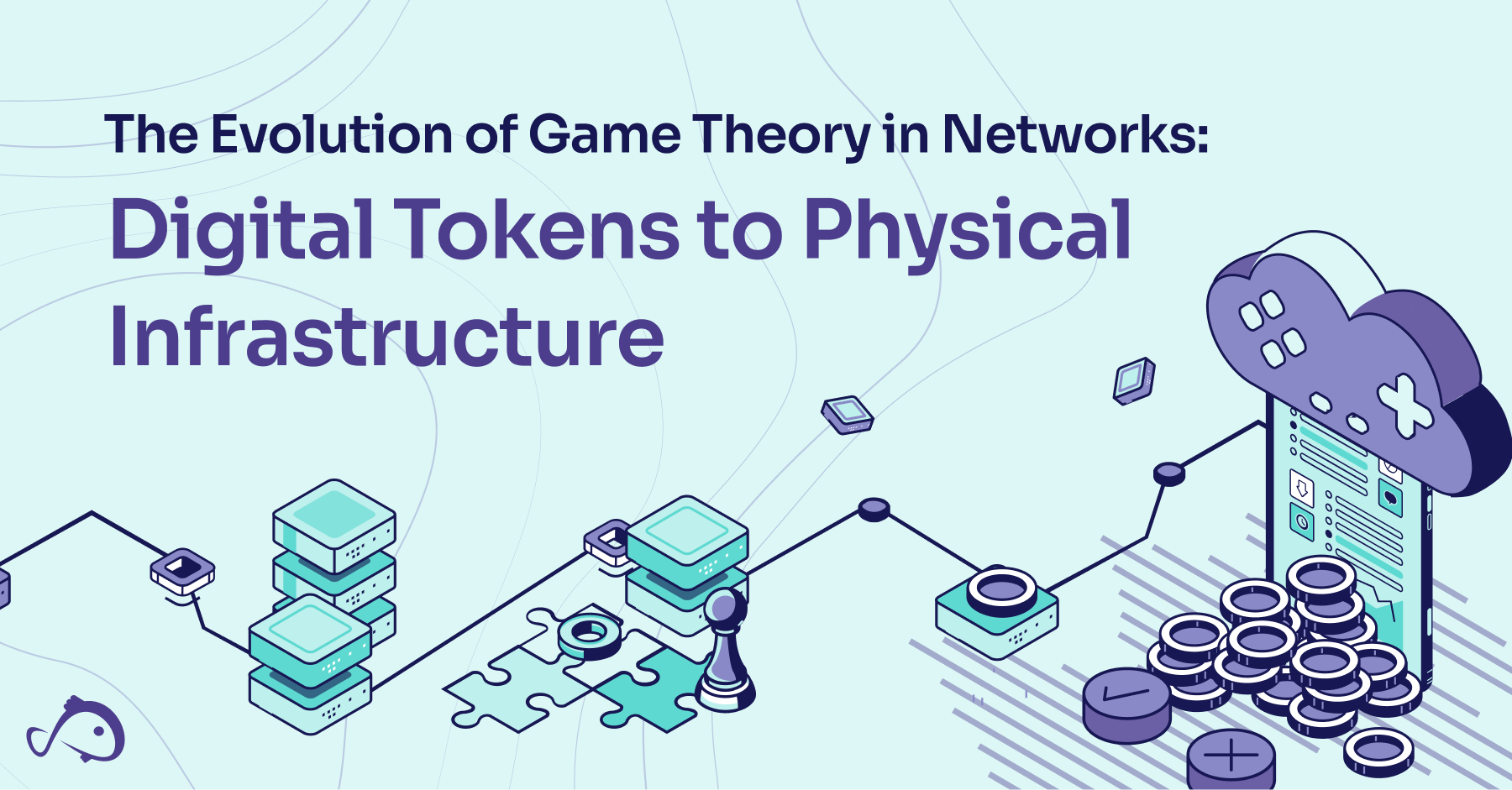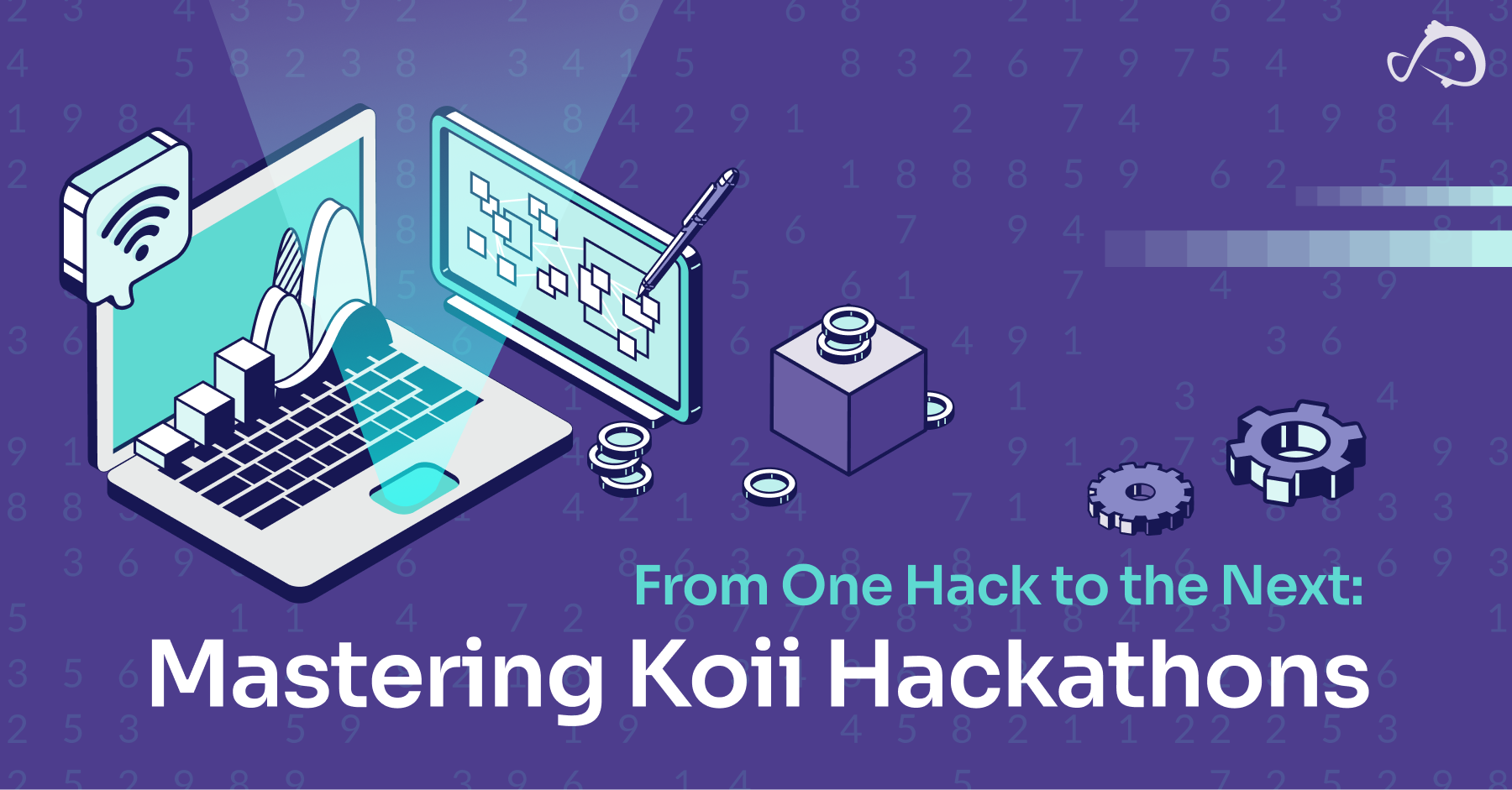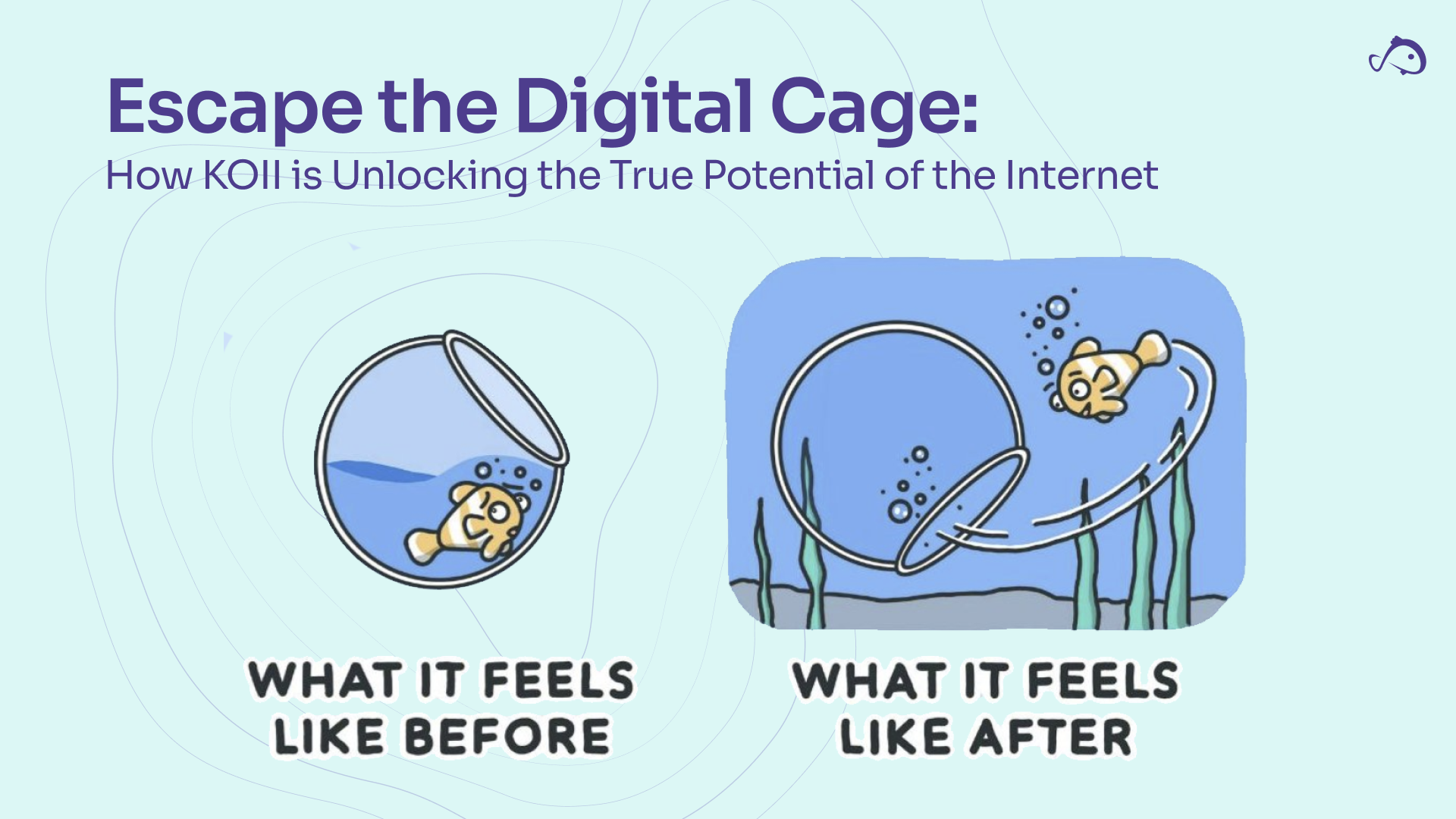At Koii we’re taking revolutionary concepts of game theory in blockchain to new heights. As we pioneer the space of Decentralized Physical Infrastructure Networks (DePIN), we’re witnessing an exciting evolution from purely digital token economies to systems that incentivize the creation and maintenance of real-world infrastructure. This journey, from Olympus DAO to Koii, showcases the power of well-designed incentives in reshaping both digital and physical landscapes.
Olympus DAO: The (3,3) Foundation
Olympus DAO popularized the (3,3) game theory concept, where:
- The first ‘3’ represents the benefit from one’s own cooperative action.
- The second ‘3’ represents the benefit from others’ cooperation.
Key implementations included:
- Bonding Mechanism: Discounted tokens for liquidity provision.
- Staking Rewards: High APY for token staking.
- Protocol-Owned Liquidity: Reducing mercenary capital dependence.
While Olympus DAO demonstrated the power of game theory in crypto, reaching a $4 billion market cap, it faced challenges in sustainability, complexity, and market dependence.
Learning from Olympus: Challenges and Insights
While Olympus DAO showcased the potential of (3,3) game theory, it also revealed challenges:
- Sustainability: Maintaining high rewards proved difficult in the long term, leading to questions about the model’s sustainability.
- Complexity: The system’s intricacies were often challenging for average users to grasp, potentially limiting widespread adoption.
- Market Dependence: The effectiveness of the model varied greatly with overall market conditions, as seen during crypto market downturns.
These insights have been invaluable as we at Koii develop our approach to game theory in blockchain.
Koii’s Evolution: Applying (3,3) to Physical Infrastructure
Koii builds on these foundations, addressing limitations through two core innovations:
- SCALEs (Succinct Curated Acyclic Ledger Extensions):
- Efficiently archive large event streams with dynamic audits and incentives.
- Enable synthetic shards for each decentralized application, reducing gas fees and enhancing scalability.
- Provide a framework for managing large application-level databases off-chain.
- CARP (Compute Attribution and Reputation Protocol):
- Standardizes reputation management to boost network security.
- Reduces audit inefficiencies through a flexible meta-structure.
- Allows participants to operate more efficiently over time.
These systems evolve the (3,3) concept for physical infrastructure:
Direct Resource-Incentive Link
SCALEs allow for efficient tracking of physical resource contributions, tying rewards directly to verifiable actions. This addresses the sustainability challenges faced by purely token-based systems like Olympus DAO.
Quality of Service Factors
CARP incorporates reliability, coverage, and service quality into its reputation system. This multi-faceted approach ensures that participants are incentivized for both quantity and quality of contributions, a leap forward from simple staking models.
Dynamic Equilibrium Models
SCALEs and CARP work together to create adaptive incentive models. As the network grows and changes, the reward structures automatically adjust, addressing the market dependence issues faced by earlier static models.
Advanced Game Theory in Action
Koii’s implementation of game theory through SCALEs and CARP manifests in several ways:
- Multidimensional Reward Systems: CARP enables complex reward structures beyond simple (3,3). For example, a (3,3,2,1) model could represent rewards for quantity, quality, geographic distribution, and longevity of service.
- Reputation-Based Audit Reduction: CARP’s reputation system allows for reduced audits on high-reputation nodes, dramatically increasing efficiency while maintaining security.
- Interoperable Network Incentives: SCALEs facilitate interaction between different DePIN projects on the Koii network, creating ecosystem-wide positive-sum games.
Overcoming DePIN Challenges
Koii’s approach addresses key DePIN challenges:
- Verifying Physical Contributions: SCALEs provide an efficient, trustless way to anchor large amounts of data to the blockchain, enabling verification of physical contributions without compromising decentralization.
- Balancing Local and Global Incentives: CARP’s flexible meta-structure allows for customized incentive mechanisms that can balance local infrastructure needs with global network objectives.
- Long-term Sustainability: The combination of SCALEs for efficient data management and CARP for reputation-based incentives creates a sustainable model for ongoing maintenance and upgrading of physical infrastructure.
The Future of Practical Decentralization
Koii’s evolved game theory models, powered by SCALEs and CARP, aim to:
- Foster sustainable growth of decentralized physical infrastructure.
- Create a direct, verifiable link between contributions and rewards.
- Build resilient, adaptive networks.
- Align incentives across diverse stakeholders, from individual contributors to large-scale service providers.
By leveraging consumer computing capacity through these flexible reputation primitives, Koii is opening new frontiers in how we incentivize, build, and maintain critical infrastructure.
Conclusion: A New Era of Decentralization
At Koii, we’re building on the game theory foundations laid by projects like Olympus DAO, but taking them to new heights with SCALEs and CARP. These innovations allow us to bridge the gap between digital blockchain systems and physical infrastructure, creating a truly decentralized and interconnected world.
We invite developers, users, and enthusiasts to join us in this journey. With Koii, we’re not just theorizing about the future of decentralization – we’re building it, one node at a time, leveraging underutilized consumer hardware resources to create a more efficient and equitable digital economy.

 From One Hack to the Next: Mastering Koii Hackathons
From One Hack to the Next: Mastering Koii Hackathons